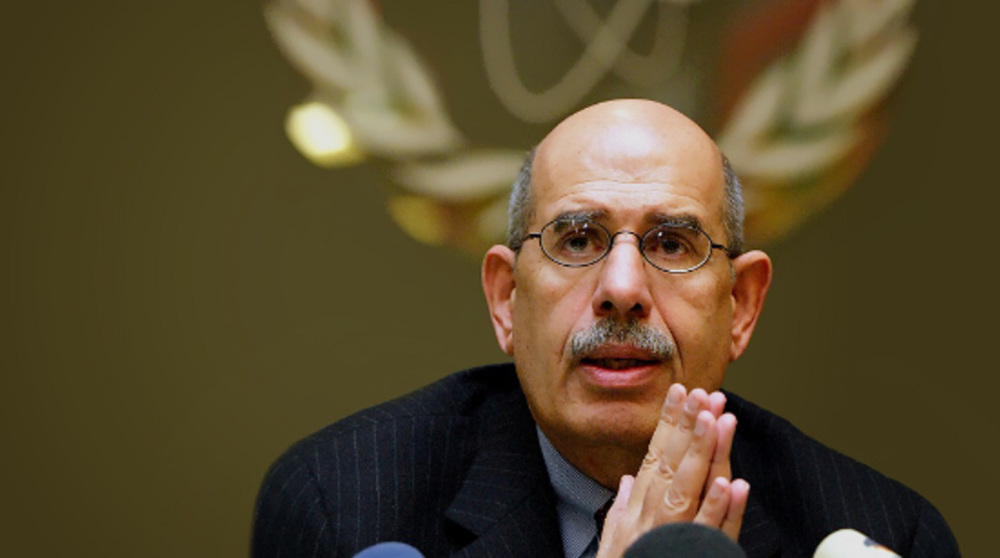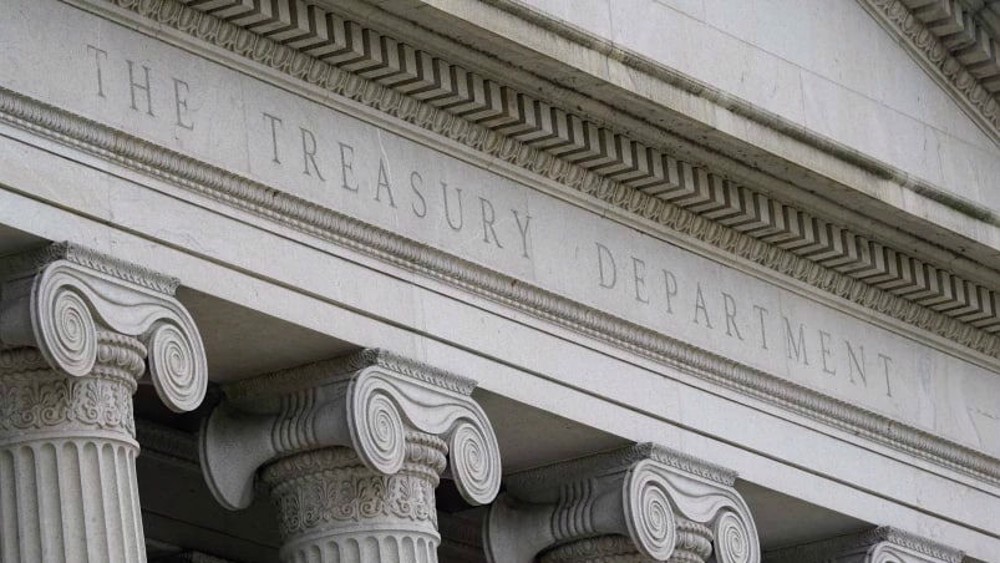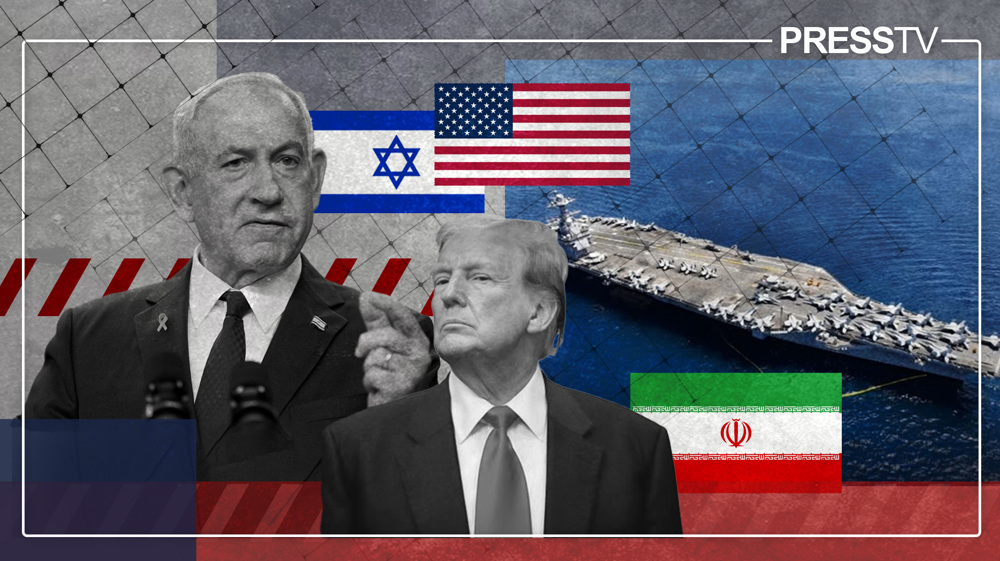US heavily investing in Asia to counter China: Pentagon chief
Acting US Defense Secretary Patrick Shanahan has accused China of undermining the sovereignty of other countries, warning that the administration of President Donald Trump is investing "significantly" in programs needed to ensuring stability in the Indo-Pacific region.
The acting Pentagon chief told Asia’s premier defense forum, Shangri-La Dialogue, in Singapore that the region remained a priority for Washington amid threats from China and North Korea.
"The Indo-Pacific is our priority theater. We are where we belong. We are investing in the region," he said on Saturday.
"We want to ensure no adversary believes it can successfully achieve political objectives through military force," he said, noting that
the Pentagon has requested an all-time high of $104 billion for research and development in the next fiscal year plus $125 billion in operational readiness.
"When we talk about preparedness, we mean having the right capabilities in the right places to respond to crises, and to compete with and deter high-end adversaries," said the Pentagon chief on Saturday.
Shanahan then went on a an extensive anti-China rant by accusing "actors" of violating international rules in the region.
“Perhaps the greatest long-term threat to the vital interests of states across this region comes from actors who seek to undermine, rather than uphold, the rules-based international order," he said, without naming China.
“We’re not going to ignore Chinese behavior and I think in the past people have kind of tiptoed around that,” the acting pentagon chief added.
Shanahan then called for an end to Beijing's conduct, which he claimed "erodes other nations' sovereignty and sows distrust of China's intentions.”
"If the trends in these behaviors continue, artificial features in the global commons could become tollbooths; sovereignty could become the purview of the powerful," he said, in what seemed to be a carefully-worded version of the longtime US claim that China has been militarizing reefs and artificial islands in the South China Sea.
Washington has long challenged China's sovereignty claims over most of the strategic waters, which act as gateway to trillions of dollars in annual maritime trade. This is while the sea's other littoral states such as the Philippines, Vietnam, Malaysia, Brunei and Indonesia also claim parts of the sea.
Washington regularly dispatches its warships and warplanes to the waters to protect what it calls “freedom of navigation,” a move which Beijing denounces as provocative.
During his first major speech since taking over as acting defense secretary in January, Shanahan said that his main priority would be “China, China, China.”
Shanahan made the remarks a day after holding talks with Chinese Defense Minister Wei Fenghe, during a meeting both sides called "constructive.”
The South China Sea is not the only source of contention between the two countries. The Trump administration has also launched an escalated trade war against Beijing while accusing it of espionage and posing threats to America's space assets.
Shanahan renews US accusations against Huawei
Earlier this month, Trump took the escalating tensions with China to another level by adding Huawei Technologies to a list of firms with which US companies cannot engage in trade unless they get a license from authorities.
Washington charges that Huawei uses its leading position in developing sophisticated 5G technology to spy for the Chinese government, an allegation strongly denied by both the firm and Beijing.
During his speech in Singapore, Shanahan became the latest senior US official to call out the Chinese telecoms giant, saying Huawei was too close to the Chinese government.
The remarks were expected to draw response from his Chinese counterpart, who was due to address the summit later in the day.
Standoff over Taiwan
Wei was also expected to bring up the issue of Taiwan, the self-ruled island which has been caught in the middle of the tensions.
Washington maintains extensive military ties with Taiwan, selling advanced military hardware to the island despite having no formal diplomatic relations with Taipei.
Shanahan said in his speech that Washington would continue to meet its military obligations to Taiwan.
Beijing has constantly warned that it would not tolerate any activity, in any form or name, which attempts to separate Taiwan from the mainland.
The Trump administration has drawn fire from Beijing for continuing its arms deals with Taipei and sending warships through the Taiwan Strait.
China's defense ministry recently warned Washington against escalating tensions after Taiwanese national security chief David Lee met with his US counterpart, John Bolton, during his 13-21 May visit to the US.
"With these actions the United States is playing with fire and undermining the continued development of Chinese-American relations, as well as peace and stability in the region", Wu Qian said during a briefing on Thursday.
Since taking office three years ago, Taiwan President Tsai Ing-wen, has refused to embrace the position that Taiwan and China are part of a single country.
This has cost her several diplomatic allies, who cut ties with Taipei in favor of mainland China. El Salvador became the fifth nation, who decided to sever ties with Taipei and turn to Beijing last year.
China endorses ties with El Salvador
Also on Friday, Chinese Vice Foreign Minister Qin Gang hailed the establishment of diplomatic relations with El Salvador, saying that “exchanges and cooperation between the two sides in various fields have developed rapidly and presented broad prospects for development.”
"The facts prove that China and El Salvador establishing ties accords with the trend of the times, has enjoyed popular support and is the right decision" the ministry on Saturday cited Qin as saying.
The statement also cited El Salvador’s new president Nayib Bukele as saying that the new government in San Salvador was committed to continuing development of ties with Beijing and would "correctly handle Taiwan-related issues.”
Bukele, who takes office on Saturday, has formerly been critical of the benefits his country received after establishing ties with Beijing, a decision former president Salvador Sanchez Ceren had strongly defended.
The US which is increasing unnerved by China’s growing influence around the world, particularly by its Belt and Road Initiative, accused Beijing in August of luring countries with incentives that "facilitate economic dependence and domination, not partnership.”
US should accept China's continued growth: Singapore
The US stance toward Beijing’s has drawn reaction from Singapore Prime Minister Lee Hsien Loong, who ruled out the possibility of preventing Chin’s global growth.
"Countries have to accept that China will continue to grow and strengthen, and that it is neither possible nor wise for them to prevent this from happening,” he said during the security forum.
“New international rules need to be made in many areas" in which China should have a bigger say, he added.
“China will expect a say in this process, because it sees the present rules as having been created in the past without its participation. And this is an entirely reasonable expectation,” he added.
Singapore and China have recently announced plans to move forward on stepping up defense ties by the end of the year.
VIDEO | ‘Clear stance’: Iran reiterates its nuclear rights as per NPT, intl. law
Press group: Israel accountable for two-thirds of 129 journalist fatalities in 2025
Iran summons Dutch ambassador to protest diplomat’s smuggling attempt
Iran’s rejection of nuclear weapons based on religious beliefs: Pezeshkian
'Profound moral decline': Netizens blast Modi for whitewashing genocide in Knesset speech
VIDEO | Venezuela launches 'love is rewarded with love' campaign in solidarity with Cuban people
In longest-ever State of Union address, Trump tries in vain to convince nation US is 'winning'
3rd round of nuclear talks opens in Geneva; Iran’s proposal seen as ‘test’ of US sincerity














 This makes it easy to access the Press TV website
This makes it easy to access the Press TV website